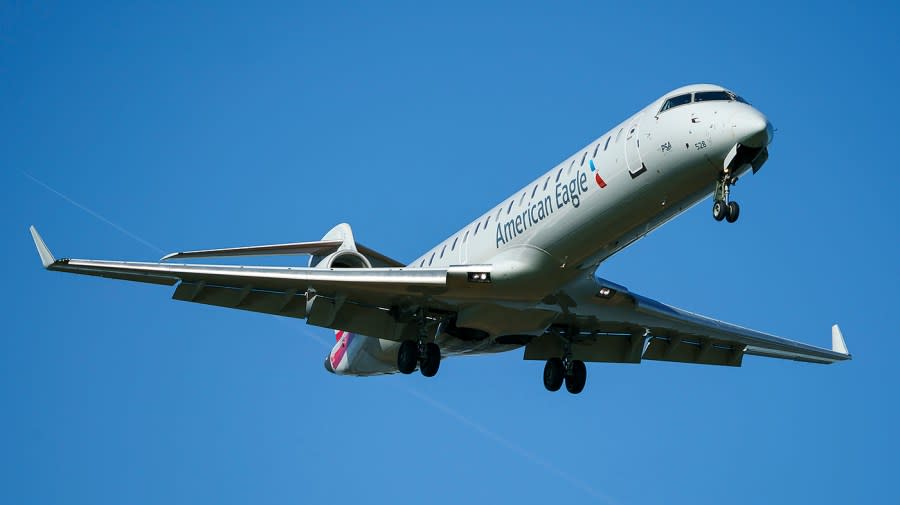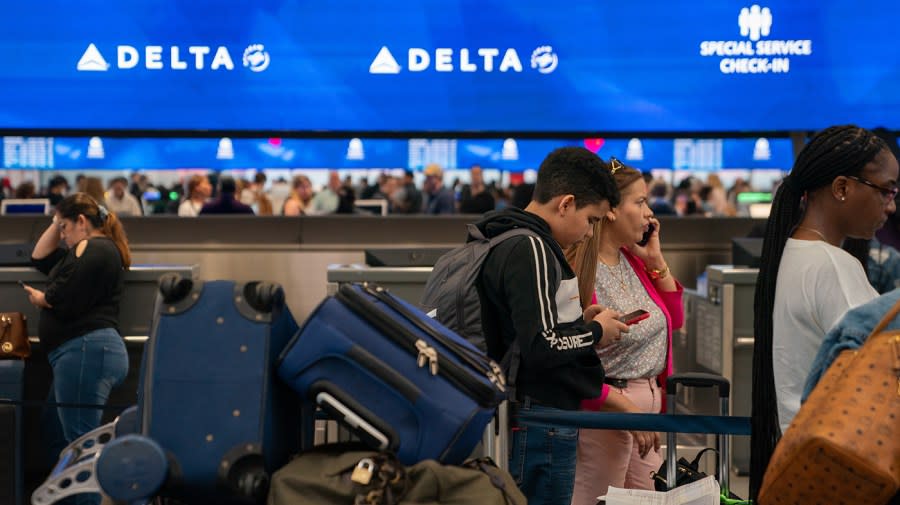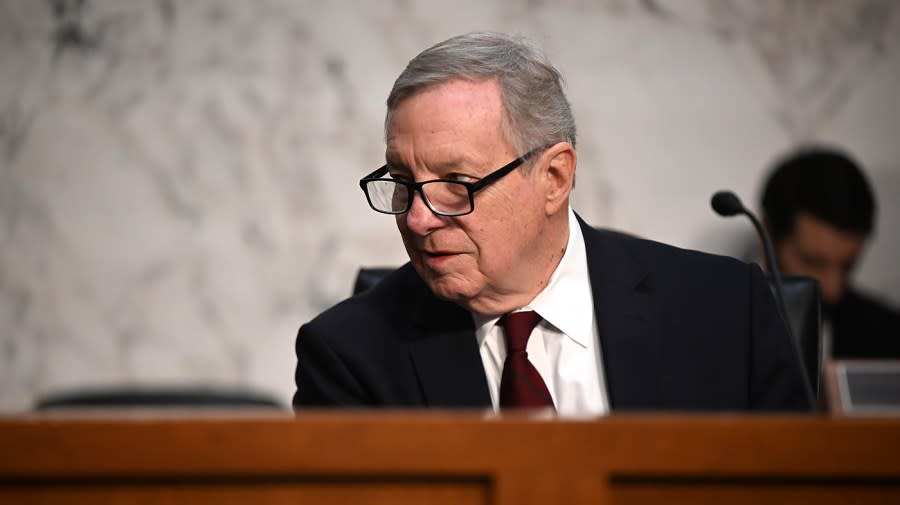Why airlines are making changes to their frequent flyer programs
American Airlines is the latest major carrier to make changes to its frequent flyer program in recent months, announcing Tuesday that many perks previously available to anyone will be exclusive to its frequent flyer members.
Delta and United Airlines have also made changes to their programs in the last year, tightening requirements as the industry turns to its credit card programs as sources of funds.

An American Airlines CRJ-900 lands at Reagan National Airport in Arlington, Va., on Feb. 23.
Airline Perk Squeeze
The American AAdvantage program changes announced Tuesday are intended to increase ways customers can earn miles, the company said. While the airline is not changing requirements for higher tiers of frequent flyer benefits, it is making lower-level benefits harder to get.
Some options previously available to the public will now only be available to AAdvantage members, including the ability to fly standby without a fee, hold a flight reservation before booking and buy single-day lounge passes.
Those moves are intended to encourage customers to sign up for AAdvantage, Aero Consulting Experts CEO Ross Aimer said, and part of business trends to increase profitability.
“The airline industry is one of those industries that evolves continuously. And what they do, it’s unfortunately all about shareholder profits,” said Aimer, a retired airline captain himself.
“In the old days, before the labor deregulation, airlines would pass on everything to the customer,” he continued. “These days they really can’t, but what they do instead of increasing the ticket price … is come up with creative things to do by cutting from somewhere.”
Delta made similar changes last year, opening up free in-flight Wi-Fi to all SkyMiles members in a bid to encourage sign-ups.
Credit Program Gains
By pushing customers into frequent flyer programs and airline-backed credit cards, Aimer said, airlines create loyal customers and a continuous income source, no matter if the customer actually flies a lot.
“That’s a huge profit center,” Aimer said of the credit cards, “And if you’re using the airline’s credit card, you have loyalty to that airline. You’re not going to just go back and forth to other airlines.”
The COVID pandemic was a perfect example, he continued. Without people actually taking flights due to COVID, airlines still made money from people making purchases on their partnered credit cards. While the industry was one of the worst impacted by COVID, the credit card programs made that hit less severe.
Partner credit cards have been a big moneymaker for airlines since their adoption in the mid-1980s. Delta made $3 billion off its American Express partner program in 2018 and boasted more than 100 million SkyMiles members in 2022.

People wait in line at the Delta Airlines check-in counter of JFK International Airport on June 30 in New York City. (Photo by David Dee Delgado/Getty Images)
Consumer Pushback
Not all changes to frequent flyer programs have been welcomed. When Delta announced it would limit access to its lounges to only higher-tier SkyMiles members in September, customers revolted. Facing mass criticism, Delta scaled back the changes a month later.
The industry overall has also shifted from rewarding points for money spent, not miles traveled, as the programs were traditionally run. Delta was the last major airline to make the shift last fall, among the changes that were not rolled back.
United Airlines announced similar changes in November, putting rewards emphasis on those that spend more.
That change has effectively eliminated the deal-hunting practice that allowed crafty frequent flyers to rack up points on a budget with long, low-cost flights.
Only Alaska Airlines still dolls out rewards per mile instead of per dollar.

Senate Judiciary Chair Richard Durbin (D-Ill.) speaks to Sen. John Cornyn (R-Texas.) before a hearing on Nov. 28.
Federal Scrutiny
The industry changes have also not gone unnoticed by federal regulators and Congress. The Department of Transportation told The Hill last month that the agency will look into waves of complaints about deceptive practices in the loyalty programs.
Senate Democratic Whip Dick Durbin (Ill.) and Sen. Roger Marshall (R-Kan.) asked the DOT to look into the airline programs in October, shortly after Delta rolled back certain changes due to customer complaints.
The Senators said while the programs initially were incentives and rewards, they now “exclusively focus” on money spent and have “unfair, abusive, and deceptive practices,” under which airlines can change programs without notifying customers.
“As a result, these programs incentivize consumers to purchase goods and services, obtain credit cards, and spend on those credit cards in exchange for promised rewards — all while retaining the power to strip consumers of those rewards at any moment,” they said.
For the latest news, weather, sports, and streaming video, head to The Hill.

